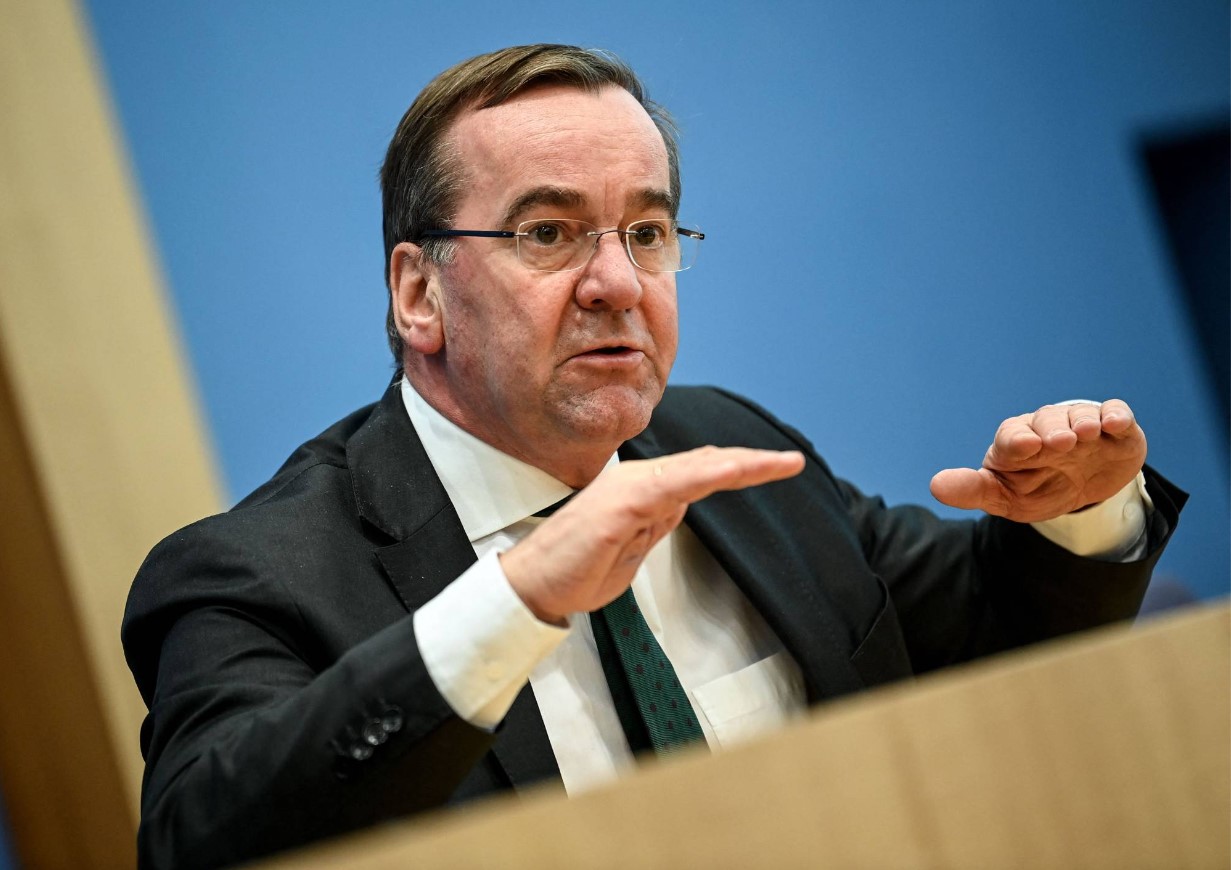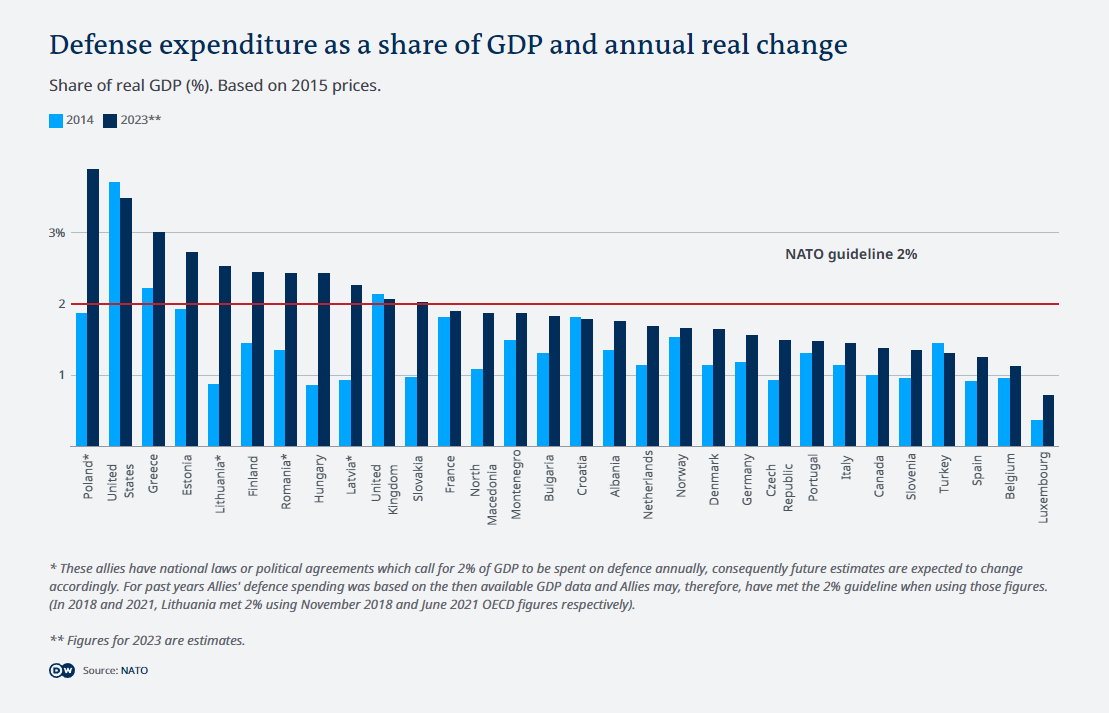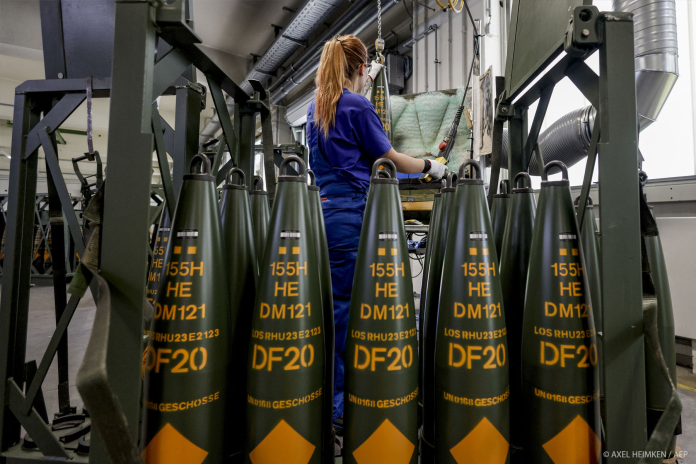The German Ministry of Defense stated they wish to increase their order of artillery munitions in their contract with Rheinmetall, a German arms and munition production company. The increase in munitions was revealed in a letter from the Defense Ministry to the Bundestag budget committee obtained by Reuters.
Increased Production Amid a War
In the letter, the Defense Ministry stated they wish to commission an additional two hundred thousand 155mm artillery shells, which are set to cost the government 880 million euros ($960 million USD). The Defense Ministry stated that the newly requisitioned shells are intended to refill the German military’s reserves after the nation sent a significant number of arms and munitions to Ukraine amid the ongoing Russo-Ukrainian war.
In order to fulfill the order, Rheinmetall announced they plan to open a new munitions factory in Unterluess, Lower Saxony. The Defense Ministry’s letter stated that the new munitions factory would help secure Germany’s independence from international arms deals, allowing the country to maintain a secure supply of munitions for future conflicts while maintaining the national budget in the long term.

This move comes amid requests for help from the Ukrainian government as they battle Russian forces. Ukrainian officials have stressed their need for 155mm artillery shells, introducing the possibility that Berlin may plan to ship the newly produced munitions to Ukraine.
The increase in Rheinmetall ordinance production further follows a speech given by German Chancellor Olaf Scholz in February 2022, known as the “Zeitenwende speech,” or “turning point.” In this speech, Scholz announced that Germany would increase its military spending from 1.5% to NATO’s target of 2% of the nation’s GDP in response to perceived Russian aggression in Ukraine. Not only does Zeitenwende seek to increase military spending, but the policy also aims to secure Germany’s independence from Russian gas, instead moving towards renewable energy.
Scholz has successfully made progress on the Zeitenwende, with Germany’s 2024 budget set to meet the 2% goal imposed by NATO for the first time since the late 1990s amid the Cold War. This policy coincides with numerous other NATO member’s increases, with every member of NATO excluding the United States, Croatia, Turkey, and the United Kingdom increasing their budgets since 2014. Despite these increases, however, many NATO members still fail to meet the 2% threshold, with a significant portion of countries that have hit the quota being Eastern European nations close to Russia.

The requisition of new munitions is not the only move by Germany to strengthen the nation’s military presence. In early April, the government announced that they planned to send five thousand soldiers to Lithuania to construct a permanent military base for coalition forces, leading to condemnation from Russian officials. This new base has faced criticism, as those opposed to the new base state that the construction would shake an already unstable national budget. Critics continued, stating that the construction of a new base would create a dent in Germany’s stores of military equipment, as equipment would have to shift from soldiers in Germany to those in Lithuania.
Germany’s newly expressed desire to hit NATO’s military spending goal signals a significant change in the nation’s foreign policy amid the Russo-Ukrainian war. Despite this desire, however, Germany has historically faced a severe funding crisis in regards to its military spending, with Bastian Giegerich, the head of the London-based International Institute for Security Studies, theorizing that it could take Germany a decade to be prepared for a conflict. Furthermore, Germany faces societal aversion to rearmament, showcased in the rise of the right-wing populist Alternative for Germany political party, which has called for the government to cease sending aid to Ukraine, claiming that aid would prolong the conflict and “could make us [Germany] party to a nuclear war,” DW reports.

